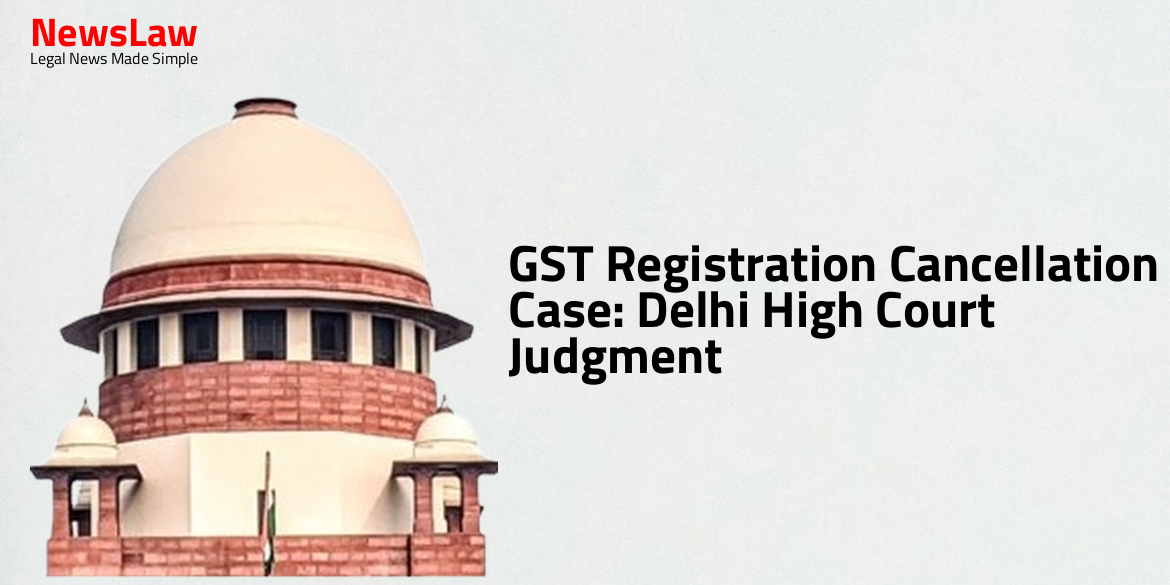In the legal case of Sobha Hibiscus Condominium vs. NCDRC, the appellant-Condominium, representing owners of apartments in ‘Sobha Hibiscus’ building, appealed against the NCDRC’s dismissal of their complaint. The Supreme Court’s decision allows recognized consumer associations like Sobha Hibiscus Condominium to file complaints on behalf of multiple consumers with similar grievances. Learn more about this landmark judgment!
Facts
- The appellant/complainant is a statutory body under the provisions of the Karnataka Apartment Ownership Act, 1972.
- The civil appeal is filed under Section 23 of the Consumer Protection Act, 1986, by the complainant who is aggrieved by the order of the National Consumer Disputes Redressal Commission.
- The NCDRC rejected the complaint on the grounds that the appellant-Condominium is neither a ‘consumer’ nor a ‘recognized consumer association’ under Section 12 of the Act.
- The Condominium consists of members who are owners of apartments in a multi-storey building called ‘Sobha Hibiscus’ in Bangalore.
Also Read: Interpretation of Will Clauses in Property Dispute
Arguments
- The appellant- Condominium, formed under the provisions of the 1972 Act, consists of members who have purchased flats in the building named as ‘Sobha Hibiscus’.
- The appellant- Condominium represents the grievances of its members before authorities and the tribunal.
- The NCDRC dismissed the complaint stating that the appellant- Condominium is not a ‘recognised consumer association’ as per Section 12(1)(b) of the Act.
- Learned counsel argues that there is no restriction on a voluntary registered association to file a complaint on behalf of a single consumer only.
- Counsel cites a Full Bench judgment of the NCDRC allowing recognised consumer associations to file composite complaints on behalf of multiple consumers with similar grievances.
- The NCDRC’s restriction on the appellant- Condominium filing the complaint is deemed to defeat the purpose of registering such an association.
- A previous order of the NCDRC, affirmed by the Court, allows recognised consumer associations to file complaints on behalf of more than one consumer with similar grievances against a seller or service provider.
- Learned counsel representing the respondents argued against the appellant being classified as a voluntary consumer association under the 1972 Act.
- The learned senior counsel for the respondents referred to the 1972 Act and Consumer Protection Act, 1986 to support the argument.
- It was contended that the appellant, being established under the provisions of the 1972 Act, does not meet the criteria to be considered a voluntary consumer association.
- The respondent’s counsel emphasized that the appellant does not qualify as a ‘consumer’ as defined in the Consumer Protection Act, 1986.
Also Read: Preservation of Open Spaces in Development Plans
Analysis
- The appellant association is formed as per mandatory provisions of the 1972 Act, not voluntarily.
- To maintain a complaint under the Act, the complainant must fit the definition of ‘consumer’ as per Section 2(1)(d) or Section 12(1) of the Act.
- A voluntary consumer association is defined under the Act as a body formed voluntarily and registered under specific laws.
- The appellant association does not qualify as a voluntary consumer association under the Act.
- The appellant does not fall under the definition of ‘consumer’ as defined in Section 2(1)(d) of the Consumer Protection Act, 1986.
- The appellant cannot maintain a complaint under the provisions of the Act.
- The impugned order passed by the NCDRC is in accordance with the law and is upheld by the Supreme Court.
- The civil appeal is dismissed with no order for costs.
- Any recognized consumer association or a consumer to whom goods are sold or service is provided can file a complaint under Section 12(1)(b) of the Act.
- A ‘recognized consumer association’ is defined as a voluntary consumer association registered under the Companies Act or any other applicable law.
- The term ‘voluntary’ implies actions done by design or intention, without interference or outside influence.
- The appellant body in question was formed based on a declaration made by the opposite party under the 1972 Act.
- Section 3(j) of the 1972 Act defines ‘declaration’ as the instrument by which property is submitted to the Act’s provisions.
- The consumer need not be a member of the association to file a complaint under Section 12 of the Act.
- Voluntary registered associations can file complaints on behalf of their members under Section 12(1)(b) of the Act.
- The provision does not restrict its application to complaints pertaining to individual complainants.
- Recognised consumer associations can file complaints on behalf of multiple consumers in one complaint.
- The finding that a recognized consumer association can file a complaint on behalf of a single consumer but not on behalf of several consumers in one complaint is erroneous.
- Interpretation of Section 12(1)(b) of the Act in the case of Amrapali Sapphire Flat Buyers Welfare Association v. Amrapali Sapphire Developers Pvt. Ltd. is agreed with.
- Filing multiple complaints for several consumers with similar grievances defeats the purpose of registration of a society or association.
Also Read: Jurisdictional Limits and Statutory Compliance in Development Planning
Decision
- The civil appeals are allowed and the impugned orders dated 06.12.2016 and 05.01.2017 are set aside.
- The matter is remitted back to the National Consumer Disputes Redressal Commission for consideration on merits.
- A direction is given for the complaints to be considered on their own merits and appropriate orders to be passed.
- The impugned order is set aside and the matter is remitted to the National Consumer Disputes Redressal Commission for fresh consideration.
- A notice is issued to the opposite party with a direction to file a written version within 30 days.
- Permission to file a joint complaint is inherent in the order of admission, and the rejection of the application seeking permission is not justified.
- The Commission is allowed to consider the grievances raised in the complaints on their own merits.
Case Title: SOBHA HIBISCUS CONDOMINIUM Vs. MANAGING DIRECTOR, M/S. SOBHA DEVELOPERS LTD. . (2020 INSC 189)
Case Number: C.A. No.-001118-001118 / 2016



